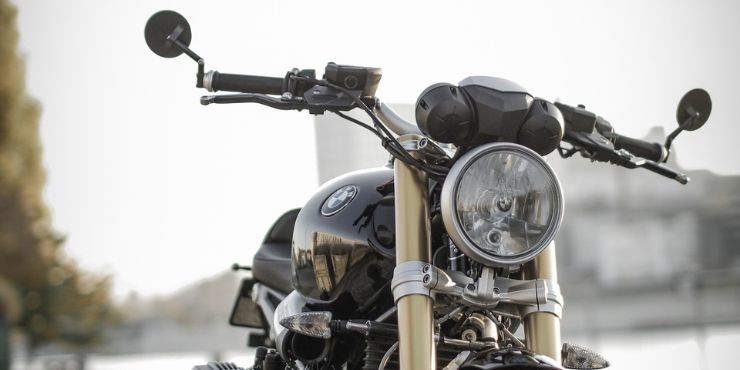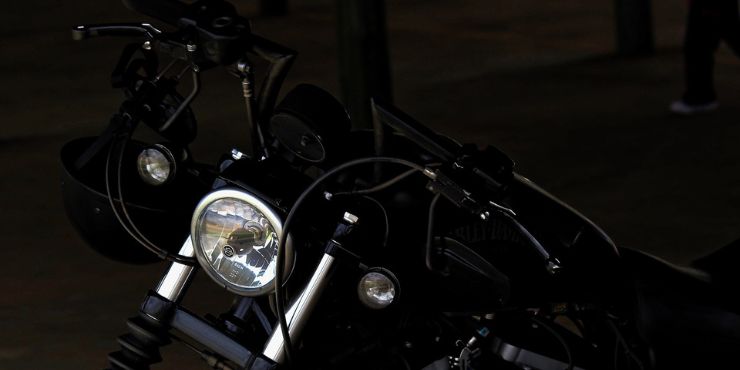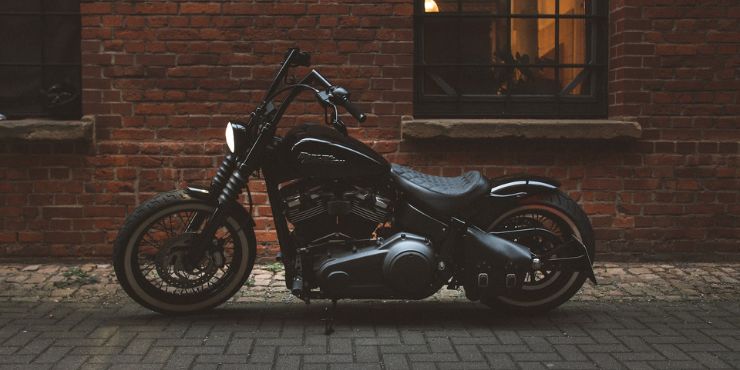Are you a Harley-Davidson bike owner looking for a way to accurately measure your bike’s handlebar? If so, then you are certainly in the right place.
To measure Harley handlebars, use a tape measure to determine the width, rise (height), and pullback. Measure from end to end for width, from the center of the handlebar base to the highest point for rise, and from the base to the point the bar curves back for pullback.
In this article, you’ll get to know all about the Harley-Davidson handlebar measurements, how to measure Harley handlebars, match the size with your style, and more. Stick around to get all the answers that you are looking for.
Match the type of handlebar with your style of riding
The best way of starting would be to decide which style works for you. It means you should trust your instincts when selecting a Harley-Davidson handlebar. Your goal should be to segue from getting used to a new position to finding one that you’ll gravitate to naturally. Biking for long periods can be quite challenging, especially if you aren’t comfortable with the way your ride handles. Having the right position of the handlebar minimizes those pins and needle sensations.
You’ll find numerous handlebar styles, each one suited to different riding styles and types of motorcycles. The zero drag will take the angle of the picture with a handlebar that’s relatively flat. This shape puts the driver forward while ramping up the speed and acceleration by reducing wind resistance and improving aerodynamics. You’ll even see variations on this theme with low or high versions, which add a center bar for added support and increase the rise.
Clip-on handlebars are usually added to sports bikes. As the name implies, you can easily adjust the width for suiting your ride. The placement will allow the driver to lean forward into the wind for increasing the speed. They cross over into different types of motorcycles. The advantage of this type of handlebar is that the driver’s position gives them more confidence on the road.
The Z-bar handlebar brings in style and short rise. It gets its name from the sharp angles that go up from the center width that resemble the letter. Each side angle will go up or toward the rider. The cruiser model is a contrast to this style, with smoother angles that go toward the back of the bike. The positioning is a lot more relaxed, hence the name.
The ape hanger is the classic chopper look, having a rise of 12 inches or more and with a curved handlebar. This type of handlebar isn’t about comfort or handling. It’s actually about the look and the vibe that it creates. You will see different riffs on this type known as buckhorns or mini apes. They have a shorter rise. The latter even comes with grips that are angled downward. They also offer a compromise to the challenge of an app hanger style.
The question of how to measure Harley-Davidson bike handlebars accurately does not have a straightforward answer. Instead, you need to consider multiple factors that might not seem the most evident. Most of it will depend on how you ride. You’ll likely look for something different for long journeys than a simple cruise through the town. You should keep in mind that making drastic changes in the size will mean adjusting the wiring and cables too.
Regardless of the Harley-Davidson bike you’re riding, the devil is always in the details. Choosing the style is the easy part, measuring the handlebar is the complex part.
How to measure Harley handlebars?
There are a couple of key factors that you need to consider when you’re installing handlebars on your Harley-Davidson. First, you’ll have to choose a specific style before figuring out the bar dimensions that you need. Determining the right style can be a daunting task as there are many styles to choose from such as Z-bars, Apes, Drag bars, etc. Once you’ve figured out the style of bars that you want, you should check the measurements. Measurements like width, height, and pullback will help you ensure that the bars will have the comfort and riding position that you desire.

While you might spend hours processing hundreds of images of different styles of handlebars, determining the dimensions is fairly simple. Here are some of the things that you’ll need –
- A long, straight object like a broomstick
- A tape measure
- A piece of string with a washer or nut tied to the end of it
- Someone to take the measurements
- Pen and paper to mark the dimensions
You can take the measurements using the stock bars on or off the motorcycle.
There are three basic measurements that you’ll need for determining the handlebar dimensions – width, rise/height, and pull back.
How to measure the overall width
- Start by sitting out on the bike
- Grasp the broomstick in your hands
- Stretch your arms to where you want your new handlebars to reside
- Then, have someone measure the distance between the outside of your hands to get the overall width
How to measure the pullback
Next up, tie the string to the broomstick (around the middle of your overall grip. It needs to hang down like a plumb bob. Then, determine the pullback by measuring from the string to the center of the handlebar.
How to measure the rise/height
The rise or height can be easily measured from the center of the handlebar to the center of the broomstick. If the broomstick isn’t directly resting above the handlebar, it’s easier to use a straight edge or a long reveal if you’ve got one. You should be making a right angle from the handlebar to the string for getting the most accurate measurement. This way, your friend can easily mark where the string and straight edge meet. Then, measure the distance from the mark on the string to the center of the broomstick for determining the height.
Once you’ve got the basic measurements, you can start your research to ensure that the style of bars you want fits with your ride. If you’re looking to add taller, shorter, or pullback-style risers to your bike, you should factor their height/pullback measurements into the handlebar section too.
As you search, you might find that certain aftermarket manufacturers use different terminology, like upsweep or backsweep. Some of them measure slightly differently or have additional measurements like the center width, end rise, or knurl width. When you come across situations like this, determine their measurement points and then factor them into the measurements or re-measure using the measurement points.
What should be the measurements for a Harley-Davidson handlebar?
You might see different terms based on the manufacturer and with imports. If you’re in doubt, you shouldn’t hesitate in going over to the manufacturer’s website for more details. However, there are three dimensions that will point you in the right direction, regardless of the style you’re going for. These include rise, overall width, and pullback.
The rise can vary greatly, from anywhere between zero inches to more than 17 inches on a mean-looking bike. Unless it’s the look that you’re after, you’ll likely find that anything higher than your shoulder height will feel uncomfortable. You’ll eventually start having restricted blood flow to your hands. Moreover, the forward position of a Harley-Davidson bike will put the strain on your wrists.
The overall width of the handlebar goes from 12 inches to more than 24 inches. While you can pick up leverage, you’ll lose control on tighter curves. You should keep in mind that it’ll also factor into your own comfort levels. The wider handlebars will challenge your arm muscles during long rides by keeping them in a less natural position. This is why you should factor in your personal style of riding, too.
You’ll see handlebars having adjustable pullback or at fixed dimensions from zero to 12 inches or above. While a lot of it depends on your frame, having a longer pullback makes you feel less cramped. Moreover, it adds to the comfort of your riding while helping you prevent back pain. However, the tradeoff is aerodynamics. While you could sit more uptight, you’ll also be adding to the wind resistance and demand on your bike.

The other dimensions that you should use include diameter. It’s more to match the brand and model of your bike. As a general rule of thumb, Harley-Davidson bikes come with one-inch handlebars, while imports lean toward seven-eighths. Tracker models push the limits to 1¾ inch across the center width while tapering to something a bit more manageable toward the ends.
Another aspect worth paying attention to would be the wrist angle. It will affect the blood flow to your hands and the comfort of your overall riding. It if works for your bike, handlebars having adjustable components are a godsend. They even allow you to easily match the style with your motorcycle. If you’re new to riding a bike, you might find them a viable option until you’ve got the handle on what feels best to you.
Conclusion
Thank you for reading. Hopefully, now you know a lot more about the Harley-Davidson handlebar measurements, how to measure Harley handlebars, match the size with your style, and more. Measuring Harley handlebars is easy as long as you know the three basic measurements. You can easily determine the dimensions of the handlebar by measuring the rise/height, width, and pull back. Having the right dimensions and the appropriate style of handlebars will give you the premium comfort and the riding position that you desire.

